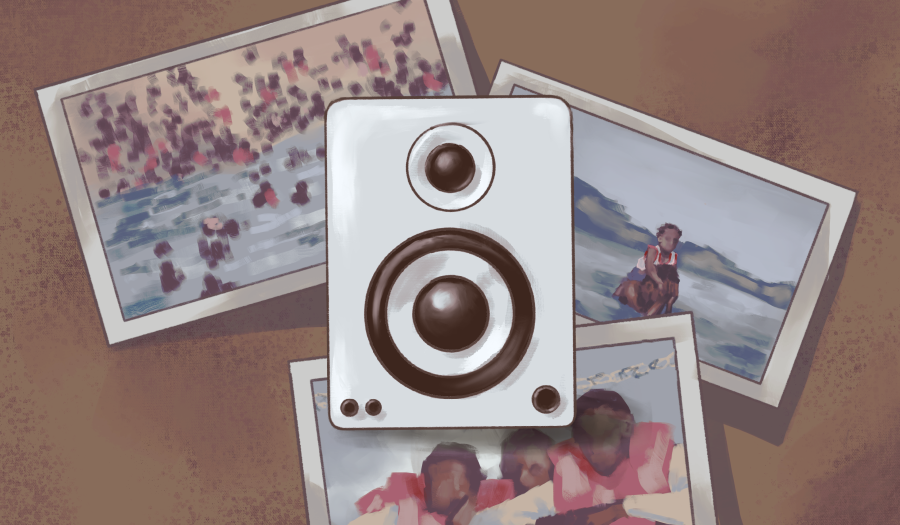But education failed to prevent the act. Bigotry took the reins. And quite literally…lashed out.
With a crumbling government and devastating earthquakes first in 2010 and now in 2021, many Haitians have taken and continue to cross a treacherous path through Latin America to seek a better future in the U.S. But this past week we witnessed these Haitian asylum seekers being ruthlessly whipped by patrols on horseback. The power of mass communication ensured that the Biden administration was quickly put to task on addressing this atrocity. Our immigration and justice systems should have never allowed these crimes to be committed against human beings in the first place. But predicating involvement by these systems, proper diversity training and education should have better informed officials whose main job was interacting with those of different backgrounds than their own. Destitution and race should not have left Haitian migrants at the mercy of criminals exercising inhumane treatment.
Improvement in education will look different for all. Some mentors will have to work to prove to their students the very existence of systemic racism.
Others who have acknowledged this fact must be educated on more nuanced biases and beliefs that often lead to complacency on urging massive changes in favor of human rights. This includes being taught to stop separating the recorded world from their own. The recording of George Floyd was not merely a movie of a distant past. It was the reality of the 21st century. The tape of the plight of Haitian migrants was not from a distant land. It was at our very nation’s border. While we realize that these events are tragic, and even engage in activism to stop future incidents, a phenomenon known as psychic numbing does not allow us to care for people without knowing their individual stories. Regardless of how many pictures are shared or how many people are traumatized, only detailed and individualistic encounters resonate with us. These stories help us connect with individuals so we can then lead with compassion in listening to the oppressed masses.
The knowledge of border camps, maltreatment of Afghan refugees, and the notorious history of lashes could have been instrumental in preventing the use of whips by patrol agents from the beginning. Many children were separated from the very parents that were trying to give them a better future. Many asylum-seekers were given meals that could barely qualify as a snack. When they asked for more, their experiences mirrored a horrible, real-life manifestation of the situations faced by Charles Dickens’ famously destitute fictional character, Oliver Twist. Prejudice mixed with weaponry is lethal and cruel. Whips have long been used to subject people deemed less than because of intrinsic characteristics. Regardless of their justification and employment on horses, the past clearly lays out the potential of whips to seriously maim people and subject them to treatment warranted by no animal, let alone any human.
Providing context for the pain of these refugees, and on the struggles of BIPOC communities could have stopped the patrol agents themselves in their tracks. They need to actively engage with activists who are deeply connected to and willing to talk about standing with survivors of tragedy. Beyond approving the use of whips comes the actions of those wielding them. Patrol officers should be tested on knowledge about the background of the migrants they will be working with most: stories on why moving three or four times between countries while holding no documentation is the best option for refugees, what forms of instability are plaguing their communities and countries, and who their families are. This is not to lay out trauma, but rather to provide agents with much needed information to civilly and justly process the people they encounter on the border.
Rather than superficially placing border officers above the law through practices like qualified immunity, we must work to ensure that migrants are not disregarded or disserviced by the law. We cannot criminalize seeking refuge in a country that is not yet their own when their country of origin cannot protect them.
The immigration and other racializing systems must endeavor to consider the experiences of the oppressed minority, when they are willing, in training officers and agents. Regulation is important, but laws are meant to preserve our well-being, not attack it. These officers deserve dismissal at best. The system, at a minimum, must include diversity-centric training and compassion-valuing employment.
Why in America circa 2021 can we expect ebony and umber-stained red? Why is ivory not assumed to meet the same end? Both instances are unforgivable, yet only one is unimaginable.
The northern border would seldom expect such behavior towards migrants. There is obvious reasoning behind why. Attacking fawn is taught as unduly wrong, white deserves nothing but light. Attacking black and brown is taught as simply protecting oneself as law enforcement supposedly fends off criminals in the dark.
Education is the way forward towards combating acts like those displayed by the border patrol. Connections strengthened by understanding can end these racist acts. Shedding light on the circumstances surrounding migrants’ escape is crucial in enforcing law with empathy.
Art by Angela Liang for the UCSD Guardian.















